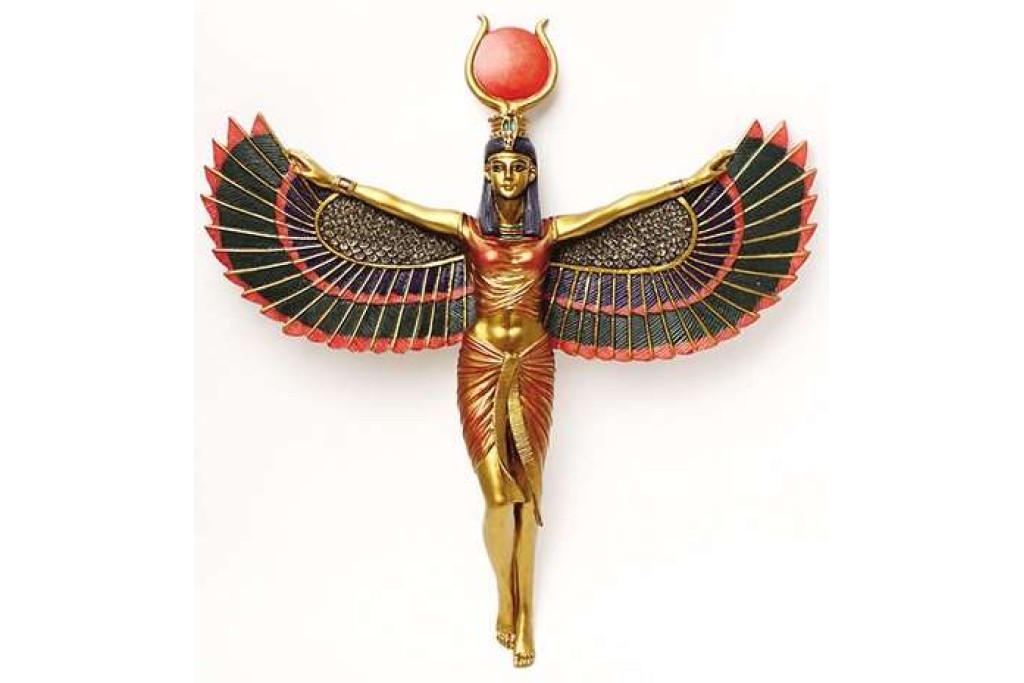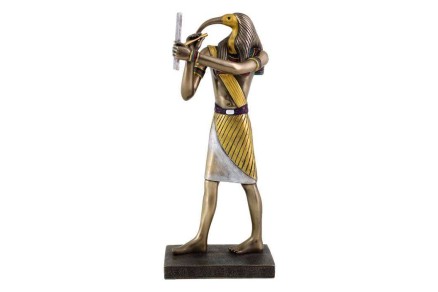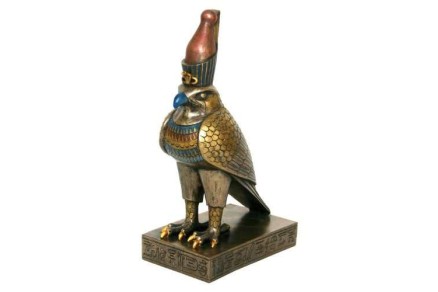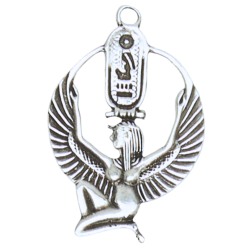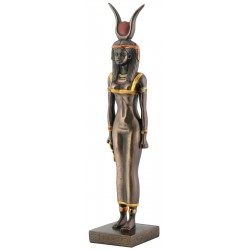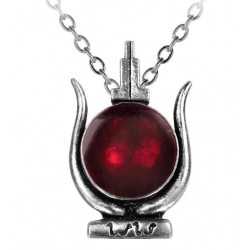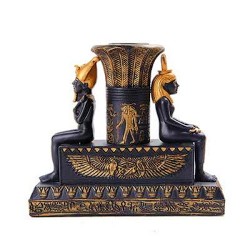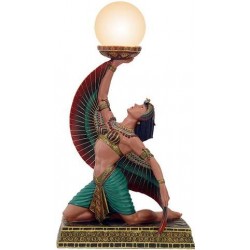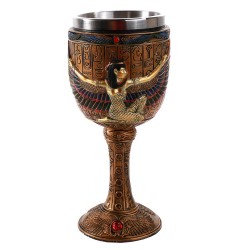The Egyptian Goddess Isis: A Journey into History, Mythology, and Worship
- June 06, 2023
- 15596
- 0
In the enchanting world of ancient Egyptian mythology, the goddess Isis reigns as one of the most revered and influential deities. Renowned for her beauty, power, and wisdom, Isis holds a significant place in Egyptian culture and continues to captivate the imagination of people worldwide.
The History of Isis:
Isis, also known as Aset, originated from the Heliopolitan Ennead, the pantheon of gods worshipped in the ancient Egyptian city of Heliopolis. Her history can be traced back to the Old Kingdom period, around 2686-2181 BCE, and she grew in popularity throughout Egyptian history. With her connection to the Nile River and agricultural fertility, Isis played a vital role in the lives of the ancient Egyptians.
The Mythology of Isis:
According to Egyptian mythology, Isis was the daughter of the sky goddess Nut and the earth god Geb. She married her brother Osiris, the god of the afterlife and resurrection. Tragically, Osiris was murdered by their jealous brother Seth, which led to Isis' quest to resurrect her beloved. Through her unwavering devotion and magical abilities, Isis successfully revived Osiris and conceived their son, Horus, who would later become a prominent god associated with kingship and protection.
Isis as the Divine Mother and Protector:
Isis embodies the archetype of the divine mother, representing fertility, motherhood, and nurturing love. She is often depicted with outstretched wings, cradling her son Horus, symbolizing her role as a protector and guide. In Egyptian art, Isis is often portrayed wearing a throne-shaped headdress, symbolizing her status as the queen of the gods and the divine ruler of heaven and earth.
Worship of Isis:
The worship of Isis extended far beyond Egypt's borders and reached various parts of the ancient world, including Greece and Rome. Her cult became particularly popular during the Hellenistic and Roman periods, and her influence transcended cultural boundaries. Temples dedicated to Isis were built, and her worship involved elaborate rituals, festivals, and mystical ceremonies.
Isis's worship appealed to people from all walks of life, including women, sailors, and those seeking healing, protection, and guidance. Devotees would make offerings, perform prayers, and participate in sacred processions to honor and seek blessings from the benevolent goddess. Her rituals often involved sacred music, dance, and the recitation of hymns, creating a mystical atmosphere filled with devotion and reverence.
The Enduring Legacy of Isis:
Despite the passage of millennia, the legacy of Isis continues to resonate in our modern world. Her influence can be seen in various aspects of culture, including literature, art, and even modern interpretations of spirituality. Many symbols associated with Isis, such as the ankh (symbol of life) and the knot of Isis (symbol of protection), have endured and are still cherished today.
The Egyptian goddess Isis remains an iconic figure in ancient mythology and an embodiment of divine feminine energy. Her history, mythology, and worship offer a profound insight into the spiritual beliefs and practices of the ancient Egyptians. By exploring the enchanting realm of Isis, we gain a deeper appreciation for the cultural richness and timeless wisdom of ancient Egypt.
Immerse yourself in the allure of Egyptian reproduction art inspired by the divine essence of Isis, and embrace the mystique of this remarkable goddess as you adorn your surroundings with her symbols and imagery. Experience the transcendent power of Isis as her timeless presence graces your life, connecting you to the ancient and mystical world of Egypt.
Related Posts
Thoth: The Egyptian God of Wisdom, Magic, and Writing
- 13826
- 0
Thoth, or Djehuti as he was known to the Egyptians, was one of the most important gods in ancient Egyptian religion. He was the god of wisdom, magic, writing, and science.
Horus: The Mighty Falcon-Headed God of Ancient Egypt
- 13550
- 0
With the head of a majestic falcon and the body of a human, Horus holds a significant place in ancient Egyptian mythology and worship. From his role as a protector to his epic battles against evil, Ho..
Related Products
Cult of Isis Pewter Necklace
$28.00
Egyptian Isis Table Lamp
$135.00
Egyptian Goddess Isis Goblet
$32.00

